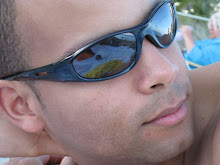 At last, we have arrived at performance day. Julian gave us final pointers to prepare us for presentation and we diligently worked to tighten up our plays for the evening performance.
At last, we have arrived at performance day. Julian gave us final pointers to prepare us for presentation and we diligently worked to tighten up our plays for the evening performance. Julian gave us tips for Jokering which included:
1. The joker must respect the audience and the actors
2. There are no fixed rules as there is no fixed audience.
3. The joker should introduce himself to the audience as he is the emcee. The contact with the audience should begin as soon as they are in their seats.
4. The joker should explain who the group of performers are and what the show is about—problems we face in our lives.
5. The opening should be as short as possible – do not explain the whole forum process as it will put them off.
6. Explain that the play poses questions and we are hoping the audience will provide the answers.
7. Some jokers make games with the audience – not necessary – but helpful to get them up on the stage from the start
8. The games the joker uses must not expose them as individuals—everyone must participate
9. During the performance, the joker must watch the audience to determine who is reacting to the play—these are the allies you will want to engage during the forum.
10. After the play, let the audience talk about what they saw – their conversations will become fodder for their interventions.
11. The joker must ask closed questions: Is this real? Have you experienced this? Do you know someone who has? The majority will be evident—the minority are the ones who have something interesting to offer—follow up with them so as to create a debate.
12. In the forum, if the play is going along and no one in the audience calls STOP, the joker can and then ask the audience if this is how things should be—is this what they want to happen—are there no other options for these characters.
13. The number of interventions is irrelevant. You want the audience to come back for more. If they are very excited, let them be. They’ll return for another performance. If they are no excited, don’t belabor the activity.
14. If the work becomes offensive in some way, the joker must take a stand and stop the audience member from upholding the oppression.
15. If the spect-actor wants to replace the oppressor, let them. Then ask the audience if they believe this new representation is reasonable.
16. In an intervention there will be ups and downs – you want to cut it at a high point so someone else will be encouraged to step in.
17. After, ask the audience if they feel the intervention changed things. Yes? Why? No? Why not? Come and make it better.
18. Beware of the magical answer. Don’t say it’s ridiculous—ask the audience is they think it’s feasible.
19. Who can come on stage? Anyone. If the audience has a problem with what is presented, they will express it.

 At the performance, Dr. Rosa Luisa Marquez welcomed the audience and provided a brief history of UPR and her own involvement with Augusto Boal and the Theatre of the Oppressed. Dr. Philip Taylor continued this welcome, describing the collaboration between NYU's Program in Educational Theatre and Augusto Boal and spoke highly of our five years of programming in Puerto Rico, which he expects to continue for some time.
At the performance, Dr. Rosa Luisa Marquez welcomed the audience and provided a brief history of UPR and her own involvement with Augusto Boal and the Theatre of the Oppressed. Dr. Philip Taylor continued this welcome, describing the collaboration between NYU's Program in Educational Theatre and Augusto Boal and spoke highly of our five years of programming in Puerto Rico, which he expects to continue for some time. 
Julian then began his jokering of the event. He told a story about his father and understanding the place he holds in the hearts of many, but this is not the second coming of the holy trinity as his father was not a god. He explained that he believes strongly in the possibilities that the work can have for himself and participants, and established his excitement and gratitude for working both with NYU and UPR.
Here are two samples of the plays we created and some sample interventions. The first depicts oppression that exists in educational institutions regarding the necessity for new teachers to follow prescribed curricula even if they feel another approach would work better for their students:
Intervention #1
Intervention #2
Intervention #3
The following also depicts institutional oppression in the educational system, but specifically focuses on homophobia:
Interventions #4 and 5 (there had been 3 previous interventions, but I did not capture them):

No comments:
Post a Comment